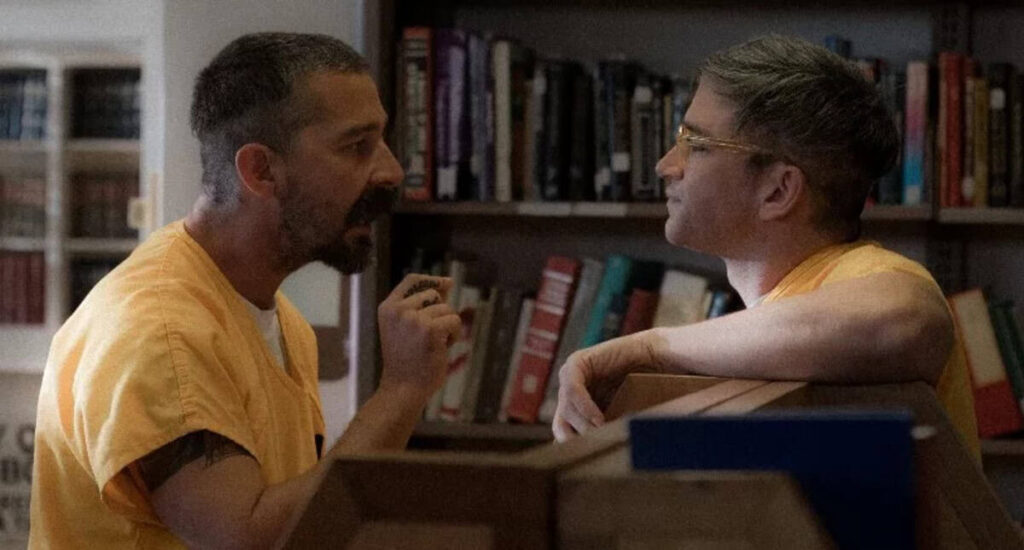

Plot Overview: The film Henry Johnson intricately unfolds the life of its main character, who embarks on a quest for moral clarity. After a singular act of kindness dramatically shifts his fate, Henry finds himself entangled with various figures of authority, including his prospective cellmate, Gene. This narrative explores profound themes such as power dynamics, the essence of justice, and the repercussions faced when one allows others to navigate their trajectory.
Film Review: David Mamet, an illustrious playwright and director with a formidable reputation in the literary world, returns to the directing scene after a lengthy hiatus with his latest project, Henry Johnson. Celebrated for classics like Glengarry Glen Ross and Hannibal, Mamet brings his trademark sharp dialogue style back to the screen, focusing on complex interpersonal dynamics and moral quandaries. My favorite of his works, The Spanish Prisoner, showcases his distinctive narrative voice, and now, over a decade later since directing Phil Spector, he graces us with another thought-provoking work.
This film, however, feels less like a traditional cinematic experience and more akin to a stage play, segmented into four acts. Each part offers a glimpse into Henry Johnson’s (played by Evan Jonigkeit) interactions that highlight his vulnerability to manipulation by those wielding persuasive speech. Although the film centers around him, Jonigkeit often serves as a backdrop to the more robust performances of his counterparts, especially Chris Bauer, Dominic Hoffman, and Shia LaBeouf, whose portrayals dominate the narrative.
The story opens with Henry, an attorney drawn into illicit dealings that lead to his imprisonment. The initial scene features a charged dialogue with his boss, Mr. Barnes (Chris Bauer), focused on a case involving a mutual acquaintance. As their conversation intensifies, Barnes artfully guides Henry towards self-doubt, showcasing Bauer’s impressive range and building palpable tension that precedes Henry’s downfall. His character, reminiscent of his roles in The Wire and Thunderbolts, brings a familiarity that escalates the scenario leading up to Henry’s incarceration and his encounter with Gene (Shia LaBeouf) and the guard, Jerry (Dominic Hoffman).

As the film progresses, attention shifts to the complicated dynamics between Henry and Gene, the latter played with riveting precision by LaBeouf. Portraying a multifaceted criminal, Gene’s magnetic blend of charm and menace captivates Henry as the latter grapples with the slipstream of Gene’s persuasive rhetoric. The evolution of Henry through Gene’s influence is an unsettling spectacle, reminiscent of a slow-motion train wreck. LaBeouf’s portrayal is stunning, capturing the essence of a character who is at once compelling and revolting.
Climactically, the film crescendos during an intense encounter in the prison library between Henry and Jerry. Here, Henry finds his voice more pronounced, yet Hoffman takes center stage, utilizing a deft negotiation style aimed at steering Henry away from destructive choices. Jerry embodies the most compassionate character, and his composed demeanor creates a striking emotional contrast within the film. The weight of Mamet’s dialogue is at play here, as all actors deliver formidable performances, though occasional monologues may disrupt the pacing and diminish the flow that is typically expected in cinema. Nonetheless, Hoffman shines alongside his talented peers.
Ultimately, Henry Johnson serves as a showcase of standout performances within a compelling yet flawed narrative. While it amplifies Mamet’s prowess for writing, it grapples with intricate legal jargon that might distract from its examination of gender dynamics and power plays. The film’s theatrical essence, underscored by static camera angles, challenges the viewer to focus on performances rather than visual experimentation. In less than ninety minutes, it offers a sharp commentary on the nature of manipulation. Henry’s repeated query—“How did you know that?”—serves to underline his naivety while risking monotony through overuse. Nonetheless, Henry Johnson emerges as an engaging narrative, buoyed by exceptional supporting performances.
Henry Johnson is currently showing in theaters.
Original Source: Nova Play.com























